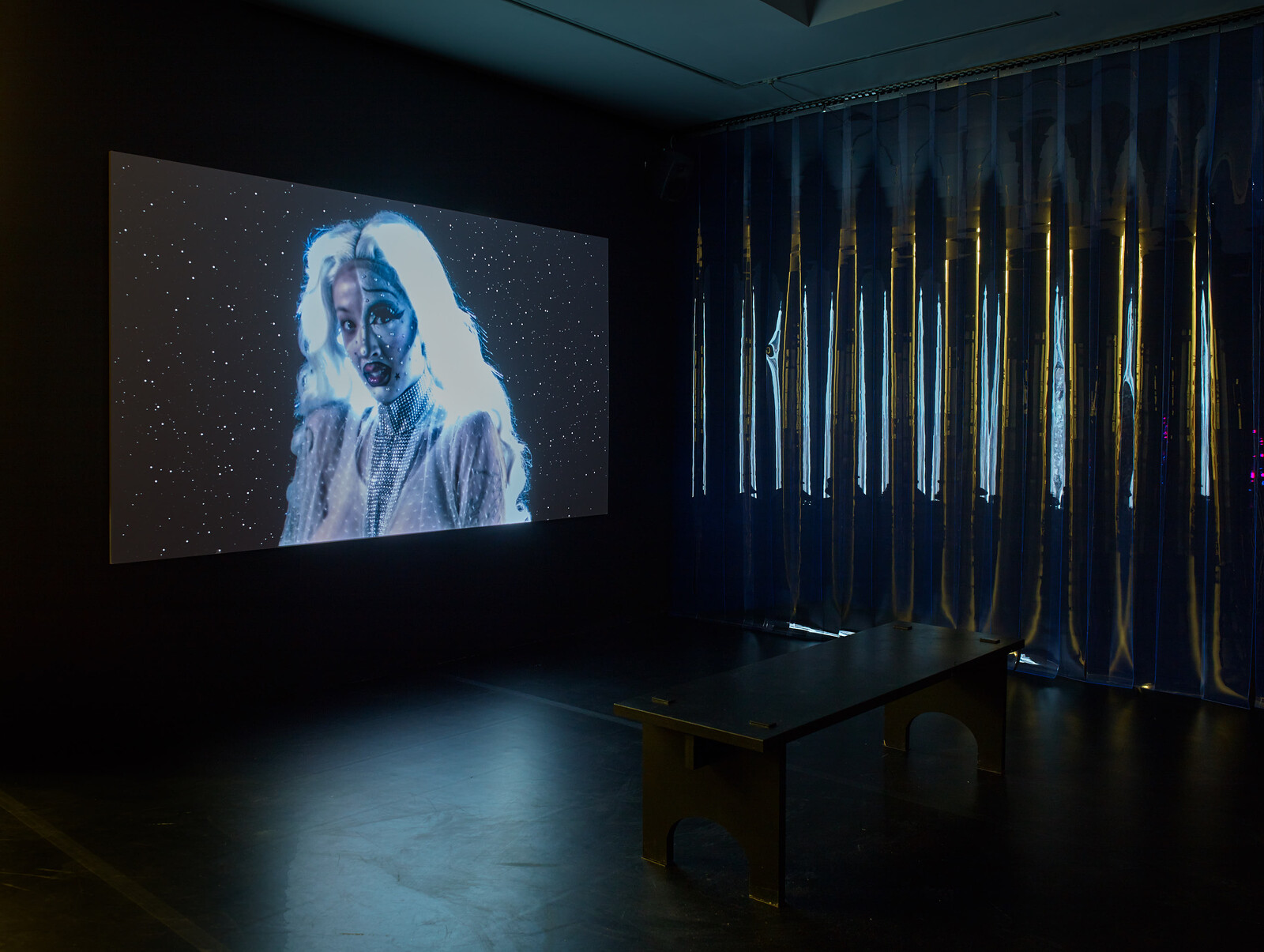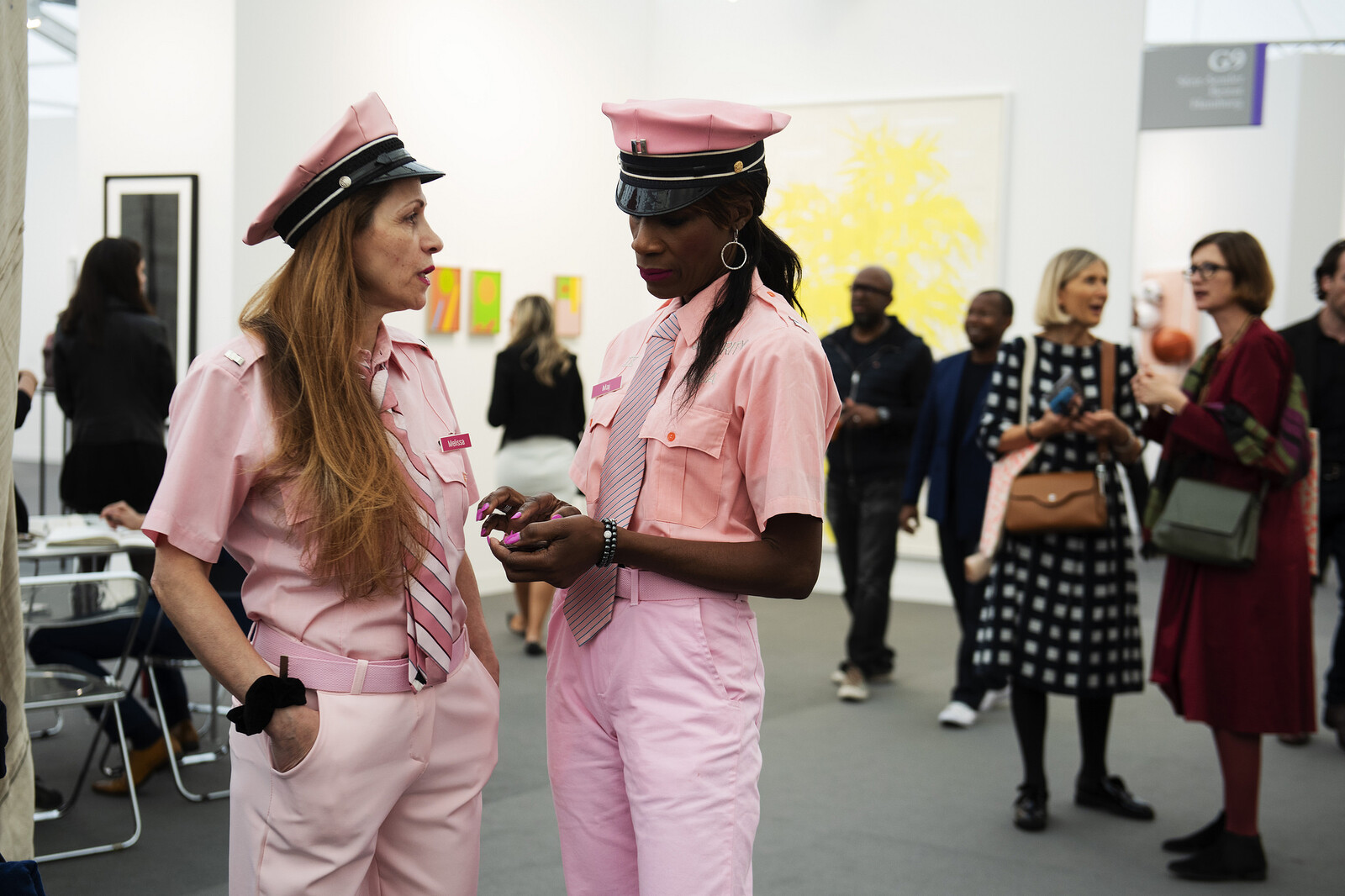Categories
Subjects
Authors
Artists
Venues
Locations
Calendar
Filter
Done
April 10, 2019 – Review
Sophia Al-Maria’s “BCE”
Philomena Epps

Sophia Al-Maria’s exhibition at Whitechapel Gallery—in which two films are separated by a thick PVC industrial strip curtain, one screened in a room painted black, the other white, one rooted in the future, the other the past—is the culmination of her position as the gallery’s writer in residence. Over the last year, the artist organized a series of associated events (intended specifically for women and non-binary guests) that correspond with the rhapsodic narrative texts written for the Whitechapel website: “We Share the Same Tears,” “We Swing Out Over the Earth,” and “We Ride and Die With You.”
Al-Maria was inspired by Ursula K. Le Guin’s 1986 essay “The Carrier Bag Theory of Fiction,” which posed an alterative, non-linear, feminist form of storytelling realized through speculative fiction. In the essay, Le Guin writes that the first useful tool for humans is a carrier bag for food—“a leaf a gourd a shell a net a bag a sling a sack a bottle a pot a box a container”—rather than the “sticks and spears and swords” of masculine domination. For her, the carrier bag becomes a metaphor for the telling of multiple stories that resists the narrative of the “bashing, thrusting, raping, killing” …
October 12, 2018 – Feature
London Roundup
Mariana Cánepa Luna

Just as Frieze Art Fair opened last Wednesday, Prime Minister Theresa May gave her keynote speech—and dared to dance again—at the Conservative Party Conference in Birmingham. She announced that freedom of movement would be terminated “once and for all” by limiting access to “highly skilled workers” (in short, migrants earning over 30,000 British pounds per year). Countless art professionals earn much less (including entry-level curatorial staff at Tate, and yours truly), as well as doubtless many of the myriad gallery and museum folks involved in the city-wide jamboree of Frieze week. How do we imagine London’s contemporary art ecology post-Brexit, a scene that has grown exponentially since Tate Modern’s opening in 2000 and the first Frieze Art Fair in 2003? The question of how the 2019 edition of the fair is going to be affected was the elephant in the tent. Most people I asked shrugged: negotiations are still ongoing, consequences are yet to be seen. “It’ll be fiiiiine,” a London museum director told me. “Maybe we’ll visit a smaller fair, like the first editions—remember those days?” opined a British gallerist friend working in New York. Although one could put this upbeat denial down to the cliché of dark British …